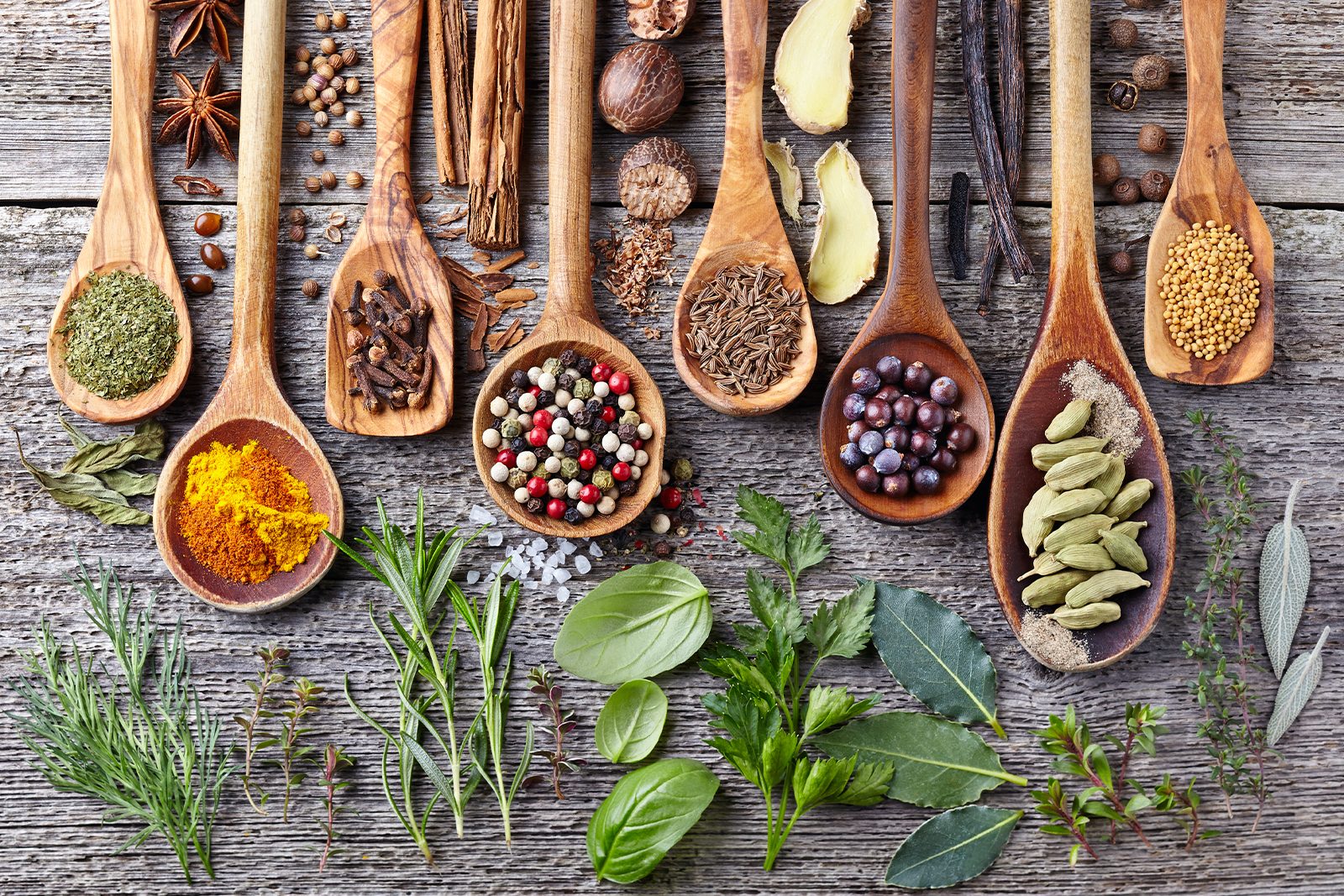
There is more to the expression ‘spice up your life’, than many of us realise.
There is more to the expression ‘spice up your life’, than many of us realise. Spices have tremendous health-giving properties, as we discover…
GINGER
For thousands of years this knobbly root has played a role in Chinese, Indian and Middle Eastern medicine, primarily as a digestive aid or to combat nausea. More recently, ginger has been found to reduce pain and swelling in people with arthritis. Studies have shown that it can activate genes that lead to the death of cancer cells.
According to Australia’s Allied Health Professionals, ginger can help in the relief of migraine symptoms, both as an anti-inflammatory and an antinausea medication. A simple tea can be made by steeping some freshly crushed ginger in hot water.
CINNAMON
This ancient cooking spice, obtained from the inner bark of cinnamomum trees, is one of the most powerful of all healing spices. It has long been known for its antibacterial and anti-inflammatory properties, but more recently it has been used to improve blood sugar control in people with diabetes.
As little as half a teaspoon could cut total cholesterol levels by 12 to 30 per cent. It has been shown to beat E.coli, among other types of bacteria, and has been used to prevent blood clots. Recent research has discovered that it is high in antioxidants, high in fibre, and can help reduce heartburn in some people.
CARDAMOM
One of history’s most expensive spices, cardamom has long been a medicinal staple in the East to treat heart disease, asthma, bronchitis and symptoms of colds and flu, as well as many digestive problems such as bad breath, colic, constipation and diarrhoea. It contains 25 volatile oils, the most medically active being cineole, which is also found in bay leaves.
Cineole is said to slow or stop the development of stomach ulcers. Recent studies have shown that the oils in cardamom are a powerful anti-inflammatory and anti-spasmodic, both of which can work together to improve digestion, and inhibit cancer formation. Research in India has shown that cardamom can fight colon cancer cells by reducing the inflammation that can induce cancer growth.
GARLIC
Known as ‘nature’s wonder drug’, garlic was prescribed by ancient Greek physician, Hippocrates for a variety of medical conditions. The pungent aroma produced by garlic comes from its most active ingredient, allicin. Studies show that it may prevent or decrease the incidence of diseases associated with old age including atherosclerosis, cancer, immune disorders, cerebral ageing, arthritis and cataract formation.
Its versatility has lent itself to extensive study recently producing very encouraging reports proving its ability to lower blood pressure, keep arteries flexible, lower the risk of heart attack, prevent colon and stomach cancer, fight infection, and prevent colds. Chewing on fennel seeds or fresh parsley will counteract the less desirable olfactory effect.
CAYENNE
Long used as a decongestant, the peppery compound that is found in cayenne (capsaicin) is the active ingredient used in many creams and ointments used to treat arthritis and muscle pain. It is also thought to act as an anti-inflammatory and antioxidant and has been used to treat shingles pain, cramps, and diabetes-related nerve pain. It also speeds up the metabolism, helping to burn calories several hours after eating.
It has been shown to regulate high blood pressure and aid healthy liver function. The American Journal of Clinical Nutrition reported that diabetes sufferers required less insulin to reduce their blood sugar after eating a meal if they consume liberal amounts of chilli pepper. With its fiery reputation, it is also thought to be an aphrodisiac.
TUMERIC
There is currently a lot of excitement around the properties of turmeric. This bright yellow rhizome is traditionally used in Indian medicine to stimulate the appetite and aid digestion. Recent research on the chemical responsible for turmeric’s golden hue (curcumin) shows it helps reduce the inflammation that contributes to tumour growth. It works to clear away carcinogens before they can damage cellular DNA, as well as repair existing damage.
Lab studies show that turmeric can prevent the growth and spread of cancer cells, especially those responsible for colon cancer and melanoma. An Australian study has revealed promising results on the antidepressant effect of curcumin in the treatment of major depressive disorders.
This article was originally published in Issue 3, Breathe Magazine – Restore Serenity.


















